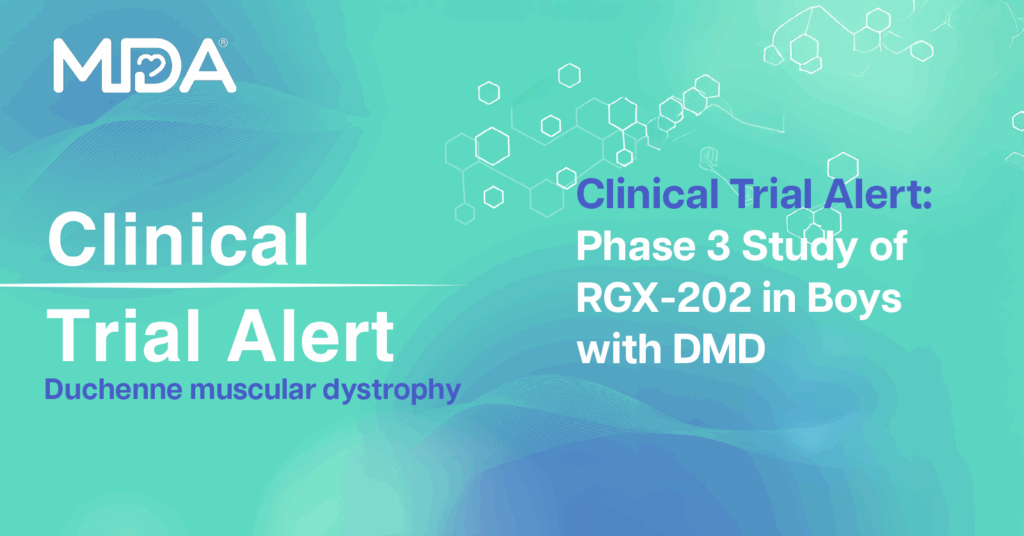
Audentes Therapeutics Announces Plans to Develop Gene-Targeted Therapies for Duchenne Muscular Dystrophy and Myotonic Dystrophy Type 1
By Jeanene Swanson | Thursday, April 11, 2019
On April 8, Audentes Therapeutics announced that it will expand its gene-targeted therapy platform to include developing experimental drugs for Duchenne muscular dystrophy (DMD) and myotonic dystrophy type 1 (DM1). The company has entered into a licensing agreement with Nationwide Children’s Hospital in Ohio and will collaborate with leading researchers in the field, Kevin M. Flanigan, MD, PhD, and Nicolas S. Wein, PhD.
Audentes will apply its existing platform, which utilizes an adeno-associated virus (AAV) vector to deliver an antisense oligonucleotide (ASO) to a patient’s cells, to both treatments for DMD and DM1. With this combined platform, the company is aiming to improve upon the limitations of other therapies, which may not have a large effect on a person’s symptoms or may not reach the right tissues in the right amount to be effective.
DMD
DMD is caused by a mutation in the dystrophin gene on the X chromosome that results in little or no production of dystrophin, a protein that is essential for keeping muscle cells intact. In some DMD patients, a mutation causes misalignment and, therefore, jumbling of the genetic code within the DMD gene. ASOs are a type of therapy that uses genetic material to target a specific gene or genetic sequence. It can be useful in such instances where the genetic code is jumbled because an ASO causes part of the gene to be ignored during manufacture of the gene product, and thereby induces realignment.
Exon skipping is a treatment strategy in which ASOs are used to “skip” (splice out, or leave out) sections of genetic code during the protein manufacturing process, allowing cells to create shortened but partially functional dystrophin protein. Exon skipping is not a cure for DMD but potentially could lessen the severe muscle weakness and atrophy that is the hallmark of the disease. A Sarepta Therapeutics drug, Exondys 51, which is based on the same strategy, was approved by the U.S. Food and Drug Administration (FDA) in 2016 to treat boys with DMD caused by a mutation amenable to skipping exon 51.
Audentes and Nationwide Children’s Hospital are collaborating to develop AT702, an AAV-antisense therapy designed to induce skipping of exon 2 for patients with DMD who have duplications of exon 2 and mutations in exons 1-5 of the DMD gene. Separate from this work, Audentes is also performing preclinical research to advance AT751 and AT753, further exon-skipping drug candidates, to treat DMD patients amenable to exon 51 and exon 53 skipping. With these programs, Audentes’ therapies could potentially treat more than 25 percent of patients with DMD.
DM1
Myotonic dystrophy (DM) is a form of muscular dystrophy that affects muscles and many other organs in the body, including the heart. It is thought that the genetic defect underlying DM causes a toxic RNA that accumulates in the nucleus of the cell and causes protein dysfunction by trapping proteins important for normal cell function. (RNA is the chemical step between DNA and protein manufacturing.)
Audentes and Nationwide Children’s Hospital are testing AAV-delivered molecules for RNA knockdown (another type of therapy that uses genetic material to target a specific gene and either decreases its expression or turns the gene off entirely) and exon skipping in DM1. Both approaches are designed to prevent the toxic RNA from accumulating in affected cells, thereby restoring normal function.
For more information on the announcement, read the company’s press release.
TAGS: Antisense Oligonucleotide, Drug Development, Exon Skipping, Gene Therapy, Research
TYPE: Blog Post
Disclaimer: No content on this site should ever be used as a substitute for direct medical advice from your doctor or other qualified clinician.




